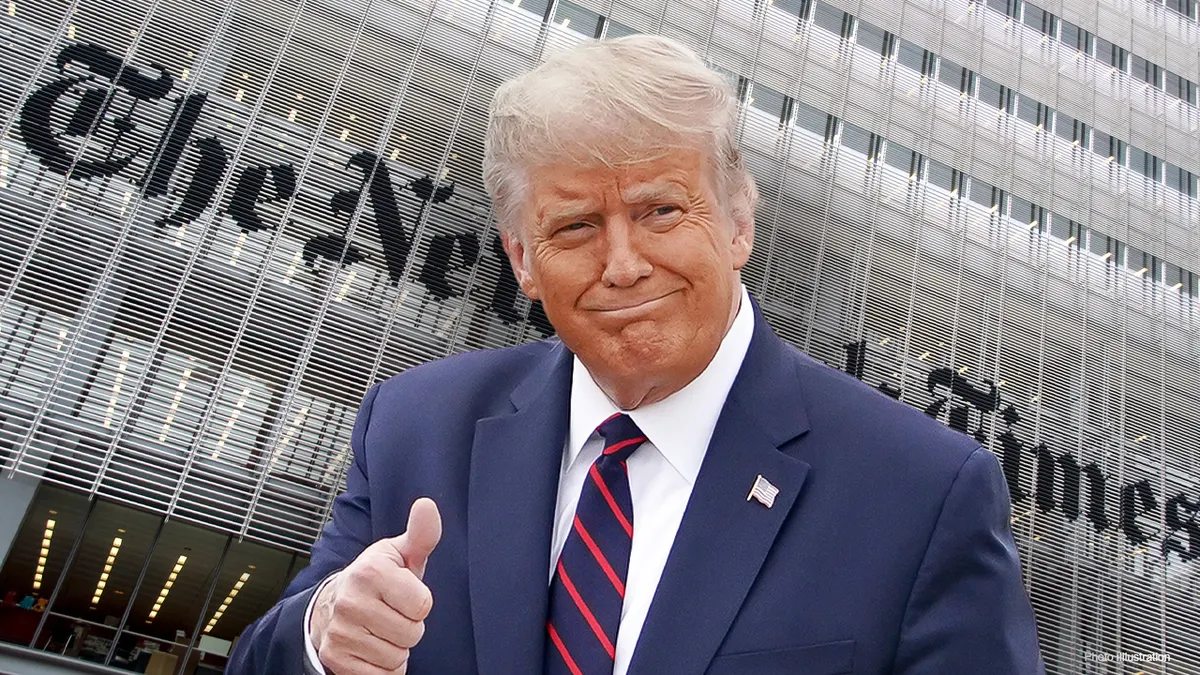
U.S. President Donald Trump has refiled his $15 billion defamation lawsuit against The New York Times, weeks after a federal judge dismissed the earlier version for being overly long and filled with self-praise, according to newly filed court documents.
The latest filing, submitted Thursday in Florida and obtained by AFP, runs to 40 pages—less than half the length of the initial 85-page complaint thrown out in September by District Judge Steven Merryday, who criticized it for “florid language” and “unnecessary repetition.”
Trump’s new suit accuses The Times, three of its reporters, and publisher Penguin Random House of making “false, defamatory, and malicious” statements in two newspaper articles and a book.
“The statements in question wrongly defame and disparage President Trump’s hard-earned professional reputation, which he painstakingly built over decades,” the lawsuit reads.
The complaint alleges the defendants acted with “actual malice”—a legal standard requiring proof that false statements were made knowingly or with reckless disregard for the truth.
Trump is seeking at least $15 billion in compensatory damages and additional punitive damages “to be determined at trial.”
Renewed Offensive Against the Media
The refiling underscores Trump’s escalating war with major media outlets since returning to the White House. He has long accused leading news organizations of harboring bias against him, frequently describing them as “enemies of the people.”
In recent months, Trump has launched or revived multiple lawsuits targeting U.S. media giants.
In July, he sued Rupert Murdoch and The Wall Street Journal for $10 billion, claiming the paper defamed him in coverage linking him to convicted sex offender Jeffrey Epstein.
That same month, Paramount Global reportedly settled a separate Trump lawsuit for $16 million over a CBS 60 Minutes segment, which he alleged was edited to favor his 2024 election rival, Vice President Kamala Harris.
Judge’s Rejection Spurs Leaner, Sharper Filing
Legal analysts say Trump’s new filing appears designed to address the judge’s earlier criticisms. The revised complaint reportedly avoids grandiose rhetoric and focuses instead on specific allegations of factual inaccuracies and damaging portrayals of Trump’s business and political conduct.
The lawsuit represents another chapter in Trump’s long-running battle against the press, which has included barring certain reporters from briefings, threatening legal action over critical coverage, and portraying unfavorable reporting as “fake news.”
While legal experts note that defamation cases involving public figures are notoriously difficult to win under U.S. law, Trump’s attorneys insist they are prepared to take the matter to trial to “defend the President’s reputation.”



